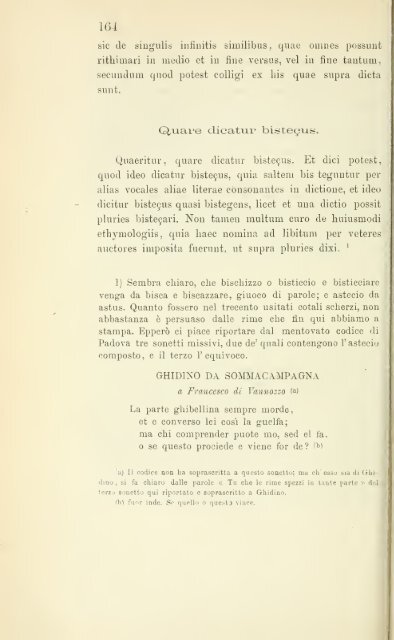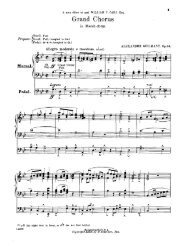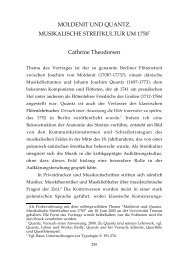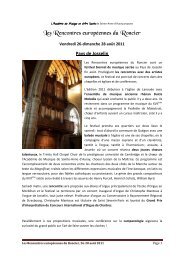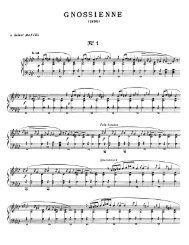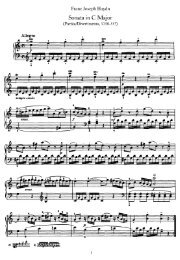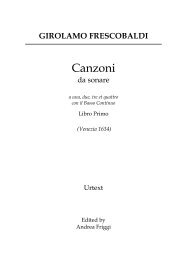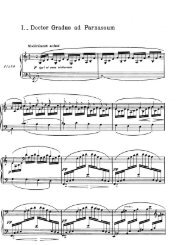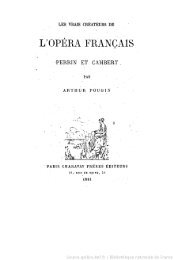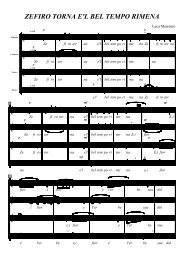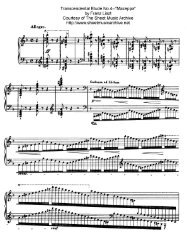- Page 7:
Ofcr-. COLLEZIONE DI 9
- Page 10 and 11:
BOLOGNA. REGIA TIPOGRAFIA.
- Page 12 and 13:
6 anche il testimonio abitasse nell
- Page 14 and 15:
8 stato palazzo d' abitazione de' s
- Page 16 and 17:
io volgari, compilata negli anni 13
- Page 18 and 19:
Ì2 nome di Onofrio fosso più comu
- Page 20 and 21:
14 buon secolo più tardi. Ne gli e
- Page 22 and 23:
16 credeva di scrivere in toscano,
- Page 24 and 25:
18 r alba od il mattino » , scritt
- Page 26 and 27:
20 G a carte 18 v. scrive a Marsili
- Page 28 and 29:
22 risponde in pretto padovano: ' B
- Page 30 and 31:
24 Acciocch' io venga 'l sommo ben
- Page 32 and 33:
26 (Quattro., tlo .. sei., do., ott
- Page 34 and 35:
2S Dùgli (,' retlàgli E fan loi*
- Page 36 and 37:
30 che contiene il capitolo agg-iun
- Page 38 and 39:
32 Loreggia, comune sito nella prov
- Page 40 and 41:
34 IIX. IL P>SBXJI>0-A]NTOISIO Ad A
- Page 42 and 43:
36 di quest'ultima, che sussiste, s
- Page 44:
38 avvezzo a critica, dopo la convi
- Page 47 and 48:
41 — 9 marzo 1445), Giannozzo Man
- Page 49 and 50:
43 gala pruova altresì, ch'egli sc
- Page 51 and 52:
45 precede una Vita sola del Petrar
- Page 53 and 54:
47 « usare per la brevitade del te
- Page 55 and 56:
49 ci quella che rispuanla il Petra
- Page 57 and 58:
51 ^ che il correttore anaj^ramrnat
- Page 59 and 60:
53 dì (framatica in Roma , cambiò
- Page 61 and 62:
55 offeso in casa propria, o che ta
- Page 63 and 64:
57 al principe ereditario di Mantov
- Page 65 and 66:
59 Cria abbiamo veduto dal passo al
- Page 67 and 68:
61 « che la suddetta opera si trov
- Page 69 and 70:
03 opus compositum fuit ano dui mil
- Page 71 and 72:
05 del 1799; le^'gcnclosi nclT auto
- Page 73:
TRATTATO DELLE K^IIVCE \^OIl.a-j^K.
- Page 76 and 77:
70 ocuHs aut anribus intimata, non
- Page 78 and 79:
72 sensus naturalis sciimt aliquos
- Page 80 and 81:
74 Do lòriTia sonc'tti siniplicis
- Page 82 and 83:
76 hoc contingit ut prolatio versus
- Page 84 and 85:
7« La breve linujiia pai" più lui
- Page 86 and 87:
80 Beato quello che non si consigia
- Page 88 and 89:
82 studnei-it in bonis actibus exer
- Page 90 and 91:
84 E quanto l'uomo di spiacer ha me
- Page 92 and 93:
86 Ma chi del tempo se ne cape e ti
- Page 94 and 95:
88 TDe diversifìcatione voltarum i
- Page 96 and 97:
90 La iiinaiia forma vivcrebbe quet
- Page 98 and 99:
92 pigrornm quasi sepos spinanini,
- Page 100 and 101:
94 difficilis, quoi-l ad omues non
- Page 102 and 103:
96 Per buon consiglio imiscesi ogni
- Page 104 and 105:
98 Item nota circa Los souettos duo
- Page 106 and 107:
100 et iulVu dicentur. Scieiiduni t
- Page 108 and 109:
102 Amar si vuole non pur con la li
- Page 110 and 111:
104 Ciascun si guardi di stato cade
- Page 112 and 113:
106 De sonettis niutis et eoriam fo
- Page 114 and 115:
108 Se '1 cane ufficio di lupo far
- Page 116 and 117:
110 L' Uomo sempre non vive, E ciò
- Page 118 and 119:
112 Scieùdum est, quod sonettus se
- Page 120 and 121: 114 quia satis bene ex hoc colligì
- Page 122 and 123: 116 E quella ingiuiia fa maggior la
- Page 124 and 125: 118 eiusdem qualitatis et quantitat
- Page 126 and 127: 120 L' opra del qual cognosce 1' al
- Page 128 and 129: 122 E così lenta mi trovo sua fede
- Page 130 and 131: 124 Or fusse dato d' amorosa legge
- Page 132 and 133: 126 Die ! non asconder donna quel d
- Page 134 and 135: 128 In fine liarum ballatarum orani
- Page 136 and 137: 130 Considerar s' i' potessi sapere
- Page 138 and 139: 132 E meno sta brigata cou giiirlai
- Page 140 and 141: 134 patieutia, coiitemplatio, loiig
- Page 142 and 143: 136 Sciendum est itaque, quod rotun
- Page 144 and 145: 138 Fuggite la viltate E ciascuna m
- Page 146 and 147: 140 per unum cantatur, sicut quando
- Page 148 and 149: 142 De mandriali biseptenario et un
- Page 150 and 151: 144 De mandriali cum. uno retoniell
- Page 152 and 153: 146 debet constare ex septem syllab
- Page 154 and 155: 148 dicatur serveiitesius vel simil
- Page 156 and 157: 150 T)e serraontesio duplici et dua
- Page 158 and 159: 152 De? niotibias confectis et eoru
- Page 160 and 161: 154 ex cousuetiidine liucusque serv
- Page 162 and 163: 156 Né ripresa Fra le orecchie sor
- Page 164 and 165: 158 A tal che gode Perchè dell' al
- Page 166 and 167: 160 postea fiaiit regulatae Labito
- Page 168 and 169: 162 De equivoco composito. Equivocu
- Page 172 and 173: 166 qiiod est contra naiuram et con
- Page 174 and 175: 168 dicfcio rithimata componitur in
- Page 176 and 177: 170 Et sic in similibus infiiiitis
- Page 178 and 179: 172 poni in verbis cuiuslibet vnlga
- Page 180 and 181: 174 Ctuare magis utimur verbis Tuse
- Page 183: COMPENDIO DI FRANCESCO BARATELLA 12
- Page 186 and 187: ]80 soli tre sillabe. Se trova sill
- Page 188 and 189: 182 qiiatro se concordano in li oct
- Page 190 and 191: 184 de mezo solo, ut guida. Lo prim
- Page 192 and 193: 186 le uolte octo, quatro e quatro
- Page 194 and 195: 188 la forma de tre uaric Balate. L
- Page 196 and 197: 190 Balata mezana in pratica. A ti
- Page 198 and 199: 192 consonantie. Lo primo ciim lo q
- Page 200 and 201: ]94 pingua. fallare, confortare, co
- Page 202 and 203: 19G Molti signori e molti regi fiui
- Page 204 and 205: 198 Seguita il terzo modo de far ca
- Page 206 and 207: 200 primo se replica. Li secondi de
- Page 208 and 209: 202 li primi versi hanno doe terrai
- Page 210 and 211: 204 seruato il numero de le stantie
- Page 212 and 213: 206 muta le consonantie. Verbi grat
- Page 214 and 215: 208 copula, vt regni, e cussi ogni
- Page 216 and 217: 210 le qual cosse saiicte tractano.
- Page 218 and 219: 212 Perdissi lalma cum lo mal aquis
- Page 220 and 221:
214 La secunda specia de Laude de s
- Page 222 and 223:
216 Da cure ifastiditi, Spesso desi
- Page 224 and 225:
^18 Dil tuo amor la face Pigliamo t
- Page 226 and 227:
220 Tu sta ili felice uio. De Chris
- Page 228 and 229:
222 Illustre Feltro liigoua Di qua
- Page 230 and 231:
224 Altro consiglio. Se pò meter c
- Page 232 and 233:
226 quelle lettere, ben che Iiabie
- Page 234 and 235:
contra natura, ampo ben se guardano
- Page 236 and 237:
230 che fa ritimare. Verbi gratia.
- Page 238 and 239:
232 secundo la volunta del " ritini
- Page 240 and 241:
234 in numero ternario, doe ouer tr
- Page 242 and 243:
Ecce quod ENO iu quatuor dictionibu
- Page 244 and 245:
238 Ciò mi guai'daiiJo cimi stupen
- Page 246 and 247:
240 Retoruo Io Francesco a lumbrosa
- Page 249 and 250:
243 Ruoli dei cittadini di Padova d
- Page 251 and 252:
245 Capellus (le Malcapollis — Cl
- Page 253 and 254:
247 Valenus de Bovoleuta — Vaucip
- Page 255 and 256:
249 Paulus (le Gulieloiis — Papaf
- Page 257 and 258:
251 — Manfredus de Scroviueis —
- Page 259 and 260:
253 de Vicoaggcris - Ioannes Franci
- Page 261 and 262:
Nec aliter rapit ips . fugam, qiuin
- Page 263 and 264:
257 Antouius Razonc - Albertus Para
- Page 265 and 266:
259 Milani cum Henrico nepote - Lau
- Page 267 and 268:
201 lacobi a Runehis - Albcvtinus q
- Page 269 and 270:
263 tribu.s lìliis - Ioannes de Ca
- Page 271 and 272:
205 l)c Quarfcrio Domi et Centcnuri
- Page 273 and 274:
11) Ah Androna illonim de Henselmin
- Page 275 and 276:
269 - Paduanus do Fantellis cum Ali
- Page 277 and 278:
271 Anzolellus Baduarius de Venetii
- Page 279 and 280:
Versus Sandum Thomashim. Familiae 4
- Page 281 and 282:
275 filiis et nepotibus - louimes B
- Page 283 and 284:
2rn Zaehi - Pensus Bochina 4. 1). A
- Page 285 and 286:
'2nv l'ileo - Dnus Albertus de Carr
- Page 287 and 288:
De Quarteria Fontis Moìendìnoriim
- Page 289 and 290:
De Centenario Sanrfi Leonardi. Viri
- Page 291 and 292:
43) De Burgo Orbornm ncmo nobilis,
- Page 293 and 294:
f) Explicatio quorundam locorum Dal
- Page 295 and 296:
289 Descriptio familiarum patavinar
- Page 297 and 298:
291 zoili — Lignatii — Lupputi
- Page 299:
APPENDICE 11. ^t-O^^ ALCUNE POESIE
- Page 302 and 303:
296 Tutti i scudier, che vaìino og
- Page 304 and 305:
29S però eh' al dì presente el ve
- Page 306 and 307:
300 che de te me pesa e dole; le so
- Page 308 and 309:
302 Come fa el villano, piglierèii
- Page 310 and 311:
304 e la vìa santa al secolo conda
- Page 312 and 313:
306 1) quantità. Io veggio una ces
- Page 314 and 315:
308 a la ca' cV Aquilea. Perfida te
- Page 316 and 317:
310 1) Zara. io so ben quel chiodo
- Page 318 and 319:
312 1] alfieri. àncora dei sgordil
- Page 320 and 321:
314 (lo bordello, non odi tn i Pare
- Page 322 and 323:
316 uè baldanza. Tu sei su la bila
- Page 324 and 325:
318 li Mar Nero. e spettò '1 vento
- Page 326 and 327:
320 che queste sian le tarme. che v
- Page 328 and 329:
322 ( con' fusse, tort' è ) ne àn
- Page 330 and 331:
324 al suo terreno, che ne terresti
- Page 332 and 333:
326 Io veggio ben eh' io canto, e t
- Page 334 and 335:
328 che nd' à fatto sta nera con s
- Page 336 and 337:
330 e se i .smergoni è cotti, di c
- Page 338 and 339:
332 Misier, co zuoba lo vegnudu, la
- Page 340 and 341:
334 in bon viaggio, da ca' Selvaggi
- Page 342 and 343:
336 « Caro frai-, dolze Affenido,
- Page 344 and 345:
338 SQUAKGIO mi: A[.ESSANDKi:iDK fi
- Page 346 and 347:
340 Nel quale al tempo de cesare ag
- Page 348 and 349:
342 Il qual ti mostrerò in sua pro
- Page 350 and 351:
344 Con molti segni che d' aire ven
- Page 352 and 353:
346 4) al Petrarca (-h cenna come a
- Page 354 and 355:
348 Marin Dandolo con la voce chiar
- Page 356 and 357:
350 CONTRASTO DI BONTEIVIPO CONCIAC
- Page 358 and 359:
352 Che dietro il sire de Coucy sé
- Page 360 and 361:
354 Gli alti Pisani mal seran conte
- Page 362 and 363:
356 54. — Tu t' inganni, comijagn
- Page 364 and 365:
B58 AfJQIJUT BALLATE MATHEI DE GRIF
- Page 366 and 367:
360 E de servir yama' ^ mio cor non
- Page 368 and 369:
362 Da picol cali se te' 9englaro;
- Page 370 and 371:
364 morì in Oristano, dove il figl
- Page 372 and 373:
366 Si usa prestar la staccia. ' E
- Page 374 and 375:
•368 Ingenera superba. Oh quanto
- Page 376 and 377:
37U Oh quanti nel catino Ancor mang
- Page 378 and 379:
372 Ij II cod. De. Megliore è chi
- Page 380 and 381:
374 , , , , Di inverno è neve et b
- Page 382 and 383:
376 stesso storico Filippo Villani
- Page 384 and 385:
378 Chi per porta è cacciato Rade
- Page 386 and 387:
380 Del ben far non pentire Ma gnà
- Page 388 and 389:
382 Non loda ben Fabrizio, Obi poi
- Page 390 and 391:
384 IlsTIDIOEl Prefazione I. Antoni
- Page 397:
^AHZ^m] PQ Tempo, Antonio da Delle


